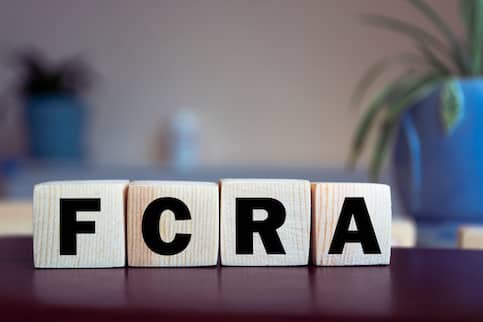When it comes to your financial health and your ability to make large purchases such as a mortgage on a home, your credit is paramount. Your credit reflects your ability to borrow money with the confidence that you’ll be able to repay it over time, usually with interest.
While you may not always be aware of it, your credit is frequently being recorded, monitored and assessed by consumer reporting agencies which track your financial activities. These include the balance and payment activities on loans you currently hold or your ability to make timely payments on your utility bills and credit cards. When you seek a loan from a bank or other financial institution, the lender will do a thorough search of your credit history before deciding whether to offer you a loan, and on what terms.
To ensure that consumers are treated fairly in the way their credit is assessed and acted upon, the federal government passed the Fair Credit Reporting Act (FCRA) more than 50 years ago.
Find A Mortgage Today and Lock In Your Rate!
Get matched with a lender that will work for your financial situation.
What Is the Fair Credit Reporting Act (FCRA)?
The Fair Credit Reporting Act of 1970 outlines how consumer information can be lawfully collected, used and redistributed. Prior to 1970, before the FCRA existed, lenders were allowed to gather information from a wide variety of sources, even newspaper notices that summarized arrests or marriage announcements.
The FCRA was born out of a desire to make credit reporting more fair and to outline privacy violations, to define how consumers can correct false information on their credit report and what their rights are in the case of credit report abuses. The Federal Trade Commission (FTC) website houses the full text of the law.
In 2010, Congress passed the Dodd-Frank Act, which granted rule-making authority under the FCRA to the Consumer Financial Protection Bureau (CFPB). The Dodd-Frank Act also requires lenders to disclose the credit score and related financial information used in the denial of a loan or as the basis for risk-based pricing.
So, how are lenders able to access your credit information in the first place? Today there are three major credit reporting agencies (CRAs), also called credit bureaus, that gather account information on you and millions of other people from various lenders, banks and other creditors. These credit bureaus, Equifax®, Experian™ and TransUnion®, aren’t the only ones who provide information. Some specialty agencies also collect information on checking accounts, apartment rental history and more.
See What You Qualify For
Buy A Home
Discover mortgage options that fit your unique financial needs.

Refinance
Refinance your mortgage to have more money for what matters.
Tap Into Equity
Use your home’s equity and unlock cash to achieve your goals.
Does The FCRA Protect Consumers?
Yes, the FCRA ensures that consumers can address issues and items reflected in their credit report. This is crucial because lenders use that information when deciding your creditworthiness before offering you a loan. You may not be aware, for example, that you have been a victim of identity theft and accounts have been opened fraudulently in your name. The FCRA also requires credit reporting agencies to keep your personal financial information private.
Here are some of the key rights that the FCRA guarantees consumers:
- You must be notified if the information in your credit file was used against you.
- You have a right to know the information contained in your file.
- You have a right to request a credit score.
- You have a right to dispute inaccurate or false information.
- Credit reporting agencies can’t report outdated negative information.
- Credit reporting agencies can only share your credit report if there is a valid need.
- You can opt out of “prescreened” offers for new credit and insurance.
- You have the right to place a security freeze on your credit.
- You can seek damages from violators.
Your Rights And Credit Bureau Restrictions Under The Fair Credit Reporting Act
Even if you’re not actively seeking a mortgage or applying for a credit card, it’s good to practice financial discipline by paying your bills on time, making full monthly payments on any credit cards and sticking to any loan repayment schedules. This will keep your credit score in good standing for when you do start talking to a lender.
You should also check your credit score regularly to make sure it’s in good standing and that there are no errors or evidence of identity theft. The FCRA has several provisions and safeguards built in that define and grant your rights as a consumer. It allows you to:
Access Your Credit Report And Credit History
Under the FCRA you have the right to access all the same information that lenders can—after all, this is information about you. You can request a free credit report from each of the three major credit bureaus every week through AnnualCreditReport.com.
Dispute Negative Information
If you identify information in your credit report that is incomplete or inaccurate, you should start by disputing that information with the credit reporting company (Experian™, Equifax®, and/or Transunion®). Explain in writing what you think is wrong and why, and include copies of documents that support your dispute.
If you mail a dispute, your dispute letter should include:
- Contact information for you including complete name, address and telephone number.
- Report confirmation number, if available.
- Clearly identify each mistake, such as an account number for any account you may be disputing.
- Explain why you’re disputing the information.
- Request that the information be removed or corrected.
- Enclose a copy of the portion of your credit report that contains the disputed items and circle or highlight the disputed items. You should include copies (not originals) of documents that support your position.
Protect Your Personal Information
The FCRA provides protections that prevent outside actors from getting ahold of your private information, or from inaccurate information about you being spread by credit bureaus. These include:
- Credit reporting agencies must correct any information about you that is inaccurate or incomplete.
- They may not report negative information about you that is more than 7 years old or any bankruptcy information that is more than 10 years old.
- The FCRA specifies what kind of lenders, insurance companies, employers or other actors have a valid need for information about you.
- Consumer reporting agencies can only give information about you to your employer or a potential employer with your written consent.
- You have the right to remove your name and address from lenders and insurers who offer “prescreened” credit.
Find A Mortgage Today and Lock In Your Rate!
Get matched with a lender that will work for your financial situation.
Permissible Purposes Under The FCRA
The FCRA clearly outlines what information third parties can or cannot obtain from a credit bureau and, of those, which ones require your written permission. Permissible purposes can include things like:
- Your written instructions
- Credit transactions
- Subpoenas or court orders
- Insurance underwriting purposes
- Employment purposes with your written authorization
- Tenant screening
- National security investigations
Consumer Reporting Agencies And Negative Information
Financial institutions that extend credit to you can legally report negative information about you to a nationwide credit reporting agency, such as Equifax®, Experian™ or TransUnion®, but they must notify you of such negative information.
This can be about things such as late payments, delinquencies, insolvency or any form of default. This notice to you must come before or within 30 days of the negative information being furnished. However, the credit bureaus may not dispel any negative information about you that is older than 7 years nor any information about any bankruptcies past 10 years.
The FCRA And Your Mortgage
Since your mortgage is likely the largest and most important financial transaction you’ll ever participate in, the FCRA is vital to ensuring that the mortgage process is fair and transparent.
In assessing your financial profile to determine whether they will lend you money to buy a home, your lender must first ask your authorization to pull your credit report. Your credit score is one of the most important factors in whether you will get a mortgage.
Generally, the higher your credit score the better rate and terms the lender will offer. The FCRA states that if any information in your credit report is used against you, you have a right to know, and if your mortgage application is denied, your lender must tell you why.
Fair Credit Reporting Act FAQs
Here are some of the most common questions about the FCRA.
How do I get a free credit report?
Under terms of the FCRA, you can get a free copy of your credit report every week.
Which entities are not subject to regulations under the FCRA?
A background-screening company is sometimes hired by a company where you are applying for a job. While these companies are able to look at various aspects of your life, including financial transactions, they are not entirely bound by all FCRA regulations.
Surprisingly, credit card companies are also not entirely beholden to FCRA regulation. Be sure you are aware of all the fine print when you sign up for a credit card, particularly regarding teaser rates and penalty rates.
When was the fair credit reporting act passed?
The Fair Credit Reporting Act was enacted in 1970.
What is adverse action as defined by FCRA?
An adverse action notice informs you that you have been denied credit, insurance, employment or other benefits based on information in a credit report. The notice should indicate which credit reporting agency was used and how to contact them.
The Bottom Line
Your credit rating is one of the most important factors in determining whether you will receive a loan, such as a mortgage on a home. To ensure that consumers are treated fairly in the way their credit is assessed and acted upon, the federal government passed the FCRA more than 50 years ago. This Act outlines how consumer information can be lawfully collected, used and redistributed.
Find A Mortgage Today and Lock In Your Rate!
Get matched with a lender that will work for your financial situation.

David Collins
David Collins is a Senior Blog Writer for Rocket Companies. He has experience in communications for the automotive industry, reference publishing, and food and wine. David holds a degree in English from the University of Michigan.












